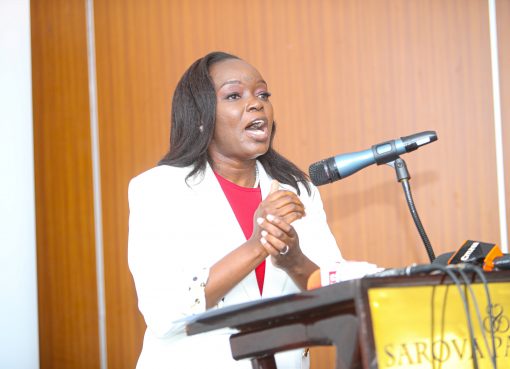The Council of Governors (CoG) has called for collaboration between the national and county governments and other stakeholders to strengthen health systems in the country by investing resources in primary health care to ensure early cancer diagnosis and treatment.
The council acknowledged that the cancer burden continues to grow and continues to exert tremendous physical, emotional, and financial strains on individuals, families, communities, and the health systems.
In a speech read by the Vice Chair, Ahmed Abdulahi, during the 8th Devolution Conference 2023 in Eldoret, Uasin Gishu, the CoG Chair, Ann Waiguru, pointed out that the policy strategy and actions around cancer had previously had relative gaps in terms of primary prevention of cancer.
“Our public health programmes had capacity challenges in regards to effectively identifying, mitigating, and eliminating risk factors associated with various cancers in communities and other places, such as public places,” she said.
She indicated that preventive health is key for both national and county government levels and that there is a major role for all stakeholders to play in preventive health as a central pillar of our health services.
Waiguru mentioned that the government was investing more resources in primary healthcare and called on the county governments and the national cancer programmes to leverage this investment and ensure stronger prevention efforts for cancer.
Noting that early cancer diagnosis is a critical factor in treatment, she reiterated the need to strengthen and expand the cancer screening programmes and help to effectively diagnose cancer when patients present themselves to health facilities.
“We are aware that cancer diagnostics and specialists remain unavailable to many Kenyans despite continued investment by counties in these areas. The CoG acknowledges and continues to encourage counties to share certain strategic health facilities and services to optimise effectiveness, even as they increase investments,” noted Governor Waiguru.
“Cancer care is one sad potential area; we will continue providing guidance to counties in this area in the coming months. We need to ensure that cancer services are accessible to all who need them at the time they need them and at a cost they can afford. These services must be effective, of good quality, safe, client-centred, and sustainable,” she added.
The CoG Chair decried the gaps still in the provision of access to palliative care close to counties despite making rapid and significant progress in health care delivery since the onset of devolution.
The Governor pointed out that the majority of those diagnosed with cancer (7 out of 10) are diagnosed at a very late stage of the disease and will need palliative care, adding that very few of the patients will, however, access this care, which further becomes more limited among certain groups like children.
“Less than 5 per cent of paediatric patients who need palliative care have access to it; we need to change this trend,” she observed.
The Council Chair discovered that cancer mostly comes with physical, psychological, and financial burdens, which leave many families in poverty, most of which never recover from these financial shocks brought about by medical expenses.
“We, therefore, must continue to seek improved access, quality, safety, and affordability of cancer services in our communities. We need to continue making improvements in NHIF until we achieve our ultimate goal, where all citizens can access high-quality health services without realising financial shocks,” she mentioned.
Waiguru lauded the county governments for working closely for the past 10 years with other stakeholders, including the National Government, to ensure all Kenyans have access to high-quality and affordable preventive, curative, and rehabilitative health services.
The CoG vice chair, Ahmed Abdulahi, expressed worry over the alarming rates of throat cancer following the research by the Kenyatta National Referral Hospital on cancer, which revealed that the North Eastern and Upper Eastern counties have recorded a serious and unexplainable increase in throat cancer.
He called for a speedy investigation to establish the driving factor for the increased cases of throat cancer in those regions.
By Ekuwam Sylvester





